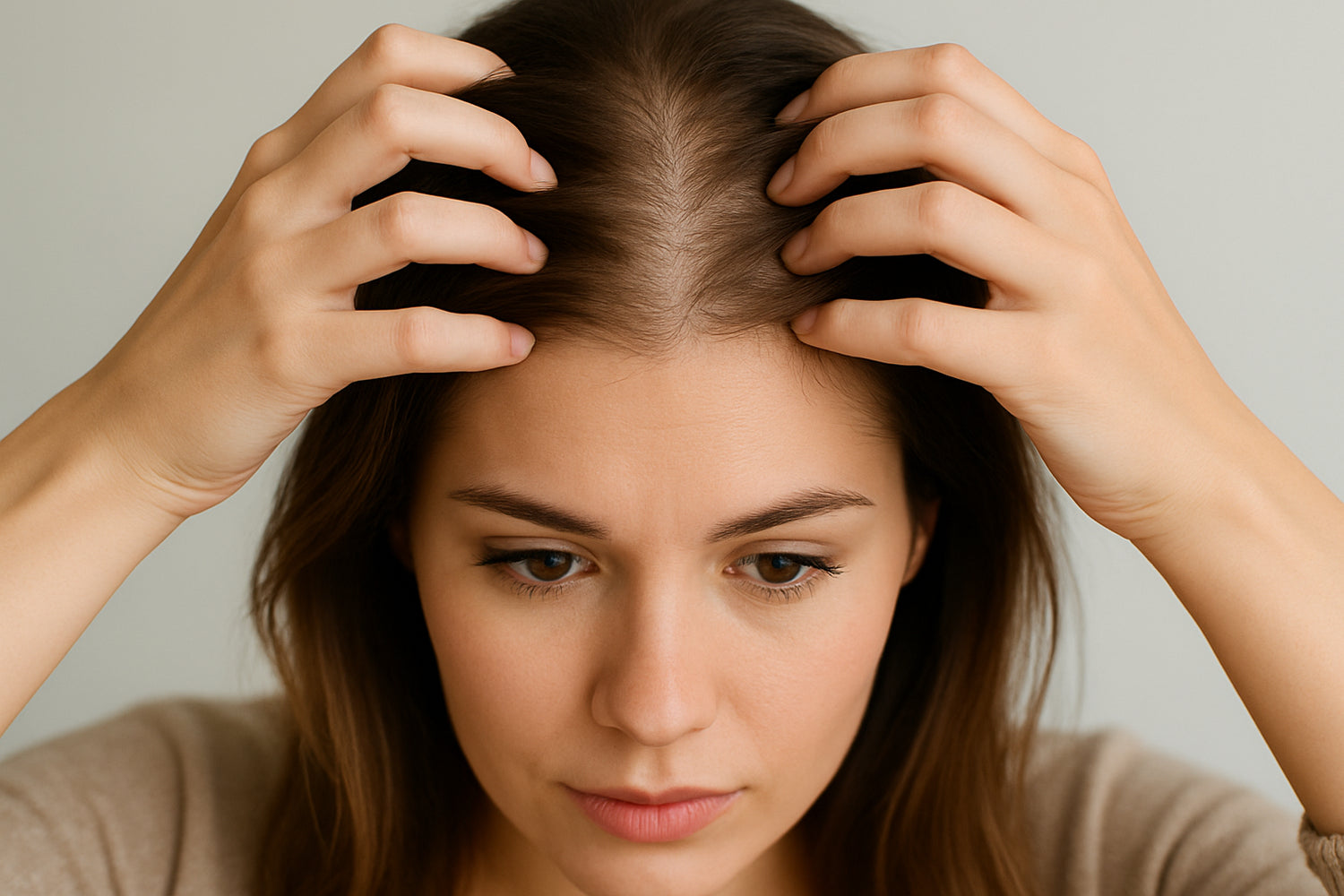During the menstrual cycle, many women are affected by menstrual insomnia. So, if you are prone to insomnia only during your cycle, you may be affected by this phenomenon. We give you 5 tips to remedy this in this article.
- What is menstrual insomnia?
- Why does the menstrual cycle cause insomnia?
- 5 tips to limit insomnia during the menstrual cycle
What is menstrual insomnia?
Menstrual insomnia, also known as premenstrual insomnia or menstrual cycle-related insomnia, is a sleep disorder characterized by difficulty falling asleep or maintaining sleep during the premenstrual and/or menstrual phase of the menstrual cycle .
This type of insomnia is often attributed to hormonal fluctuations that occur during the menstrual cycle, particularly changes in estrogen and progesterone levels.

Why does the menstrual cycle cause insomnia?
Female sex hormones are secreted by the ovaries. From puberty to menopause, a woman experiences about five hundred cycles, the succession of which is interrupted by pregnancies, estrogens ( estradiol, estrone and estriol ) and progesterone.
During the menstrual cycle, the activity of the ovaries is controlled by two hormones produced by the brain : FSH (follicle stimulating hormone) and luteinizing hormone.
Progesterone is known for its sedative effect and works favorably to induce sleep .
Estrogen helps regulate body temperature which is essential for quality sleep . If its levels fluctuate, sleep will be disrupted .
Additionally, estrogens interact with many neurotransmitters such as dopamine and serotonin involved in sleep regulation.
Finally, it has also been noted that during menstruation, an increase in cortisol levels (fear of staining the sheets) can cause stress and anxiety which will disrupt sleep.
5 tips to limit insomnia during the menstrual cycle
Poor sleep during menstruation can be treated. A few simple steps are enough to get back to peaceful nights.
Tip #1: Adopt a regular sleep routine
Maintaining consistent bedtimes and wake-up times, even on weekends, helps regulate the internal body clock and stabilize sleep cycles.
Prioritizing a quiet activity before bed, such as reading or meditating, sends a clear signal to the body that it is time to relax and prepare for sleep. These simple practices can make a significant difference in the quality of sleep and help better manage disruptions related to the menstrual cycle .

Tip #2: Take care of your diet
A few dietary adjustments can greatly improve sleep quality.
Avoiding caffeine and foods high in sugar or fat in the evening is essential , as these substances can worsen sleep disturbances by stimulating the nervous system and disrupting digestion.
Instead, choosing foods rich in magnesium and tryptophan , such as bananas, almonds, and turkey, can promote relaxation and the production of melatonin, the sleep hormone. These nutrients help calm the body and mind, setting the stage for a restful night of sleep .
Additionally, drinking soothing herbal teas such as chamomile, valerian or passionflower can also help create an environment conducive to relaxation and sleep.

Get a good night’s sleep and reduce your pain with our Duo Sleep supplement!
A natural formula to calm the mind and promote rapid sleep.
Discover Duo Sleep! Tip #3: Manage pain and discomfort
Managing pain and discomfort during menstruation may be necessary to improve sleep quality.
If menstrual cramps are disrupting sleep, using the "traditional" hot water bottle on the lower abdomen can help relax the muscles and relieve pain. The heat promotes blood circulation and reduces muscle tension , providing immediate relief.
Tip #4: Try relaxation techniques
To improve the quality of your sleep, trying relaxation techniques can be particularly beneficial.
Meditation, yoga , or deep breathing exercises are effective practices to reduce stress and prepare the mind for restful sleep. These activities calm the nervous system and promote a relaxed state conducive to sleep .
In addition, a short session of progressive muscle relaxation, lying on the bed, helps to release the bodily tensions accumulated during the day. By successively contracting and releasing each muscle group, you can release tension and prepare yourself for a night of peaceful and restful sleep. Incorporating these techniques into your daily routine can greatly improve your overall well-being and the quality of your sleep during your menstrual period.
Tip #5: Improve the sleep environment
To begin with, it is essential to ensure that the bedroom is conducive to sleep, dark, quiet and with an optimal temperature.
Using blackout curtains, earplugs, or a white noise machine can help create a calming space .
Keeping screens away at least an hour before bed is also essential to avoid blue light which inhibits the production of melatonin, the sleep hormone.
Using soft, comfortable cotton sheets during this time can greatly improve your comfort during nights when you feel more fragile or even vulnerable.
By adopting these tips, you will likely see a noticeable improvement in the quality of your sleep , allowing you to wake up every morning feeling refreshed and energized.
However, if the pain is intense and persists despite these measures, it is recommended to consult a doctor or gynecologist who will be able to offer suitable solutions. Do not neglect your well-being and do not hesitate to seek help to improve your quality of life during this period.







